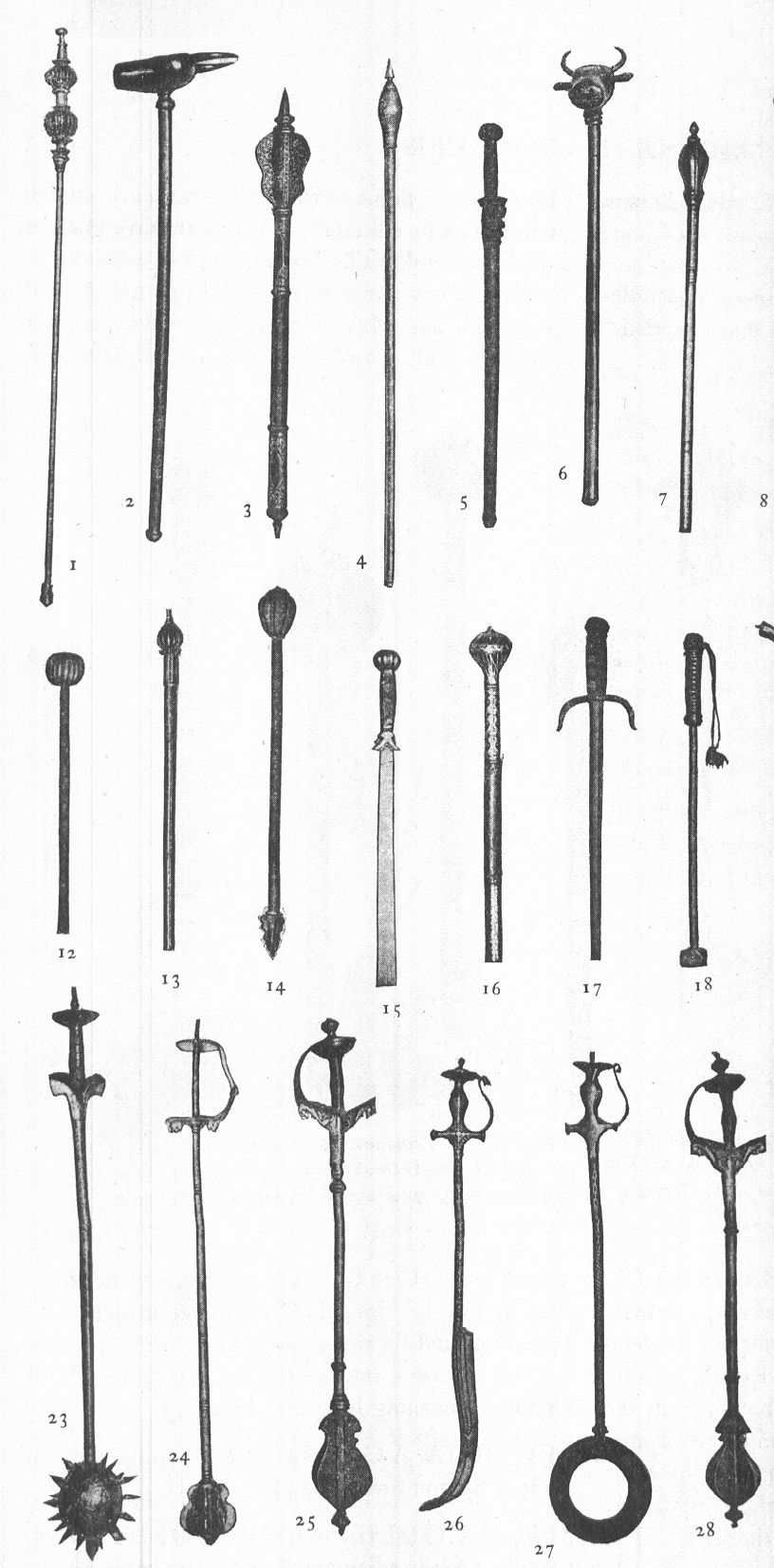
 |
|
|
#1 |
|
Member
Join Date: Oct 2007
Posts: 1,596
|
Hi,
After a very lean period in the acquisition dept I've managed to snag this Ottoman? flanged mace. The internet is rather reticent on this type of item, a situation I'm hoping the members here will be able to rectify. The only other similar I could find is in the sold section at Oriental Arms. The mace weighs just under 2lbs and is 25ins long with a reinforcing bar running down a velvet covered wooden shaft. The grip and the area below the head are steel with remnants of gold work which is also evident on the edge of the flanges and the reinforcing bar which itself is attached by three, possibly brass, nails/tacks. The photos I'm afraid are not too hot but I will attempt to remedy that soon. The piece was quite heavily encrusted with rust and I am still in the process of administering TLC. I hope you will find this of interest and I look forward to hearing your views and comments. Regards, Norman. |
|
|

|
|
|
#2 |
|
Member
Join Date: Aug 2006
Posts: 608
|
Hi Norman,
FWIW, my Maratha mace (est. early 17th C.) is similarly 'decorated' on the edge of the flanges, and I've seen an illustration of what I think was a similarly-constructed shaft described as Indo-Persian... if I can find the image, I'll post it.  Cheers, Chris |
|
|

|
|
|
#3 |
|
Member
Join Date: Aug 2006
Posts: 608
|
Here it is... #3, from Stone (Fig. 533, pg. 422)... not entirely similar, but not far-off either, IMHO:

|
|
|

|
|
|
#4 |
|
Member
Join Date: Oct 2007
Posts: 2,818
|
Congrats. I was watching that and the other couple of rusty items ;-)
The strip of steel on the shaft with the knobs if for fingers to grip. I say this because the Tabar I have here points to these ergonomics by the direction the head is mounts and when swung hard you can feel it at work. The Decoartion I have seen called Turkish, Persian and Indo Persian. Exactly...well who knows  but I have seen similar designs on clothing....in particular one loose parallel is the similar style of design on Dr Landsells pants being part of the Khokland armour presented by the Emir of Bokhara.... but I have seen similar designs on clothing....in particular one loose parallel is the similar style of design on Dr Landsells pants being part of the Khokland armour presented by the Emir of Bokhara....
|
|
|

|
|
|
#5 |
|
Member
Join Date: Oct 2007
Posts: 1,596
|
Hi Chris and Gav,
Many thanks for your interest and input. Although I see the parallels with some Indo-Persian decoration and construction the shape of the flanges, to my mind, are distinctly European and that along with the decoration is why I plumped for the Ottoman attribution. I'm pretty much in the dark with this piece so any input is welcome. Thanks again. My Regards, Norman. P.S. Gav your P.M. inbox is full. |
|
|

|
|
|
#6 |
|
Member
Join Date: Oct 2007
Posts: 2,818
|
I'll gather an image of the Tabar head, it is very "Turkic" by design and the haft construction is exactly the same as your mace with very much the same designs to the steel surfaces but with a bigger surface area to play with.
Here is the forte of a Turkman Shamshir below. PM box wont be cleared for a while...emails work fine though. Gav |
|
|

|
|
|
#7 |
|
Member
Join Date: Oct 2007
Posts: 2,818
|
to ponder....

|
|
|

|
|
|
#8 |
|
Member
Join Date: Jun 2008
Location: The Sharp end
Posts: 2,928
|
It's BEAUTIFUL!
I am crying with envy mate!! I've always wanted one of these beauties. Mucho Congrats!! |
|
|

|
|
|
#9 |
|
Arms Historian
Join Date: Dec 2004
Location: Route 66
Posts: 9,940
|
Hi Norman,
Im very much inclined to follow with Chris and Gav's well supported views on this mace. As cited in the 'Arts of the Muslim Knight' (p.235), "...the mace, perhaps because of its ancient associations, acquired a legendary quality second only to swords amongst the Islamic world". Many of these derived from the 'amud', an iron baton with an integral head, many early examples zoomorphic. These were very much associated not only in the combat sense but as processional and ceremonial symbols. It seems that many Ottoman forms had a bulbous, fluted head and that these seem to have become largely in similar forms with Eastern Europe in particular. Naturally various types with these kinds of flanges were well known in medieval Europe and the interpolation of weapon forms between East and West is well known. As has been pointed out similar decorative motif is seen on Indian arms and seems to correspond to various examples attributed to that sphere. All the best, Jim |
|
|

|
|
|
#10 |
|
Member
Join Date: Oct 2007
Posts: 1,596
|
Hi Gene and Jim,
Many thanks for the enthusiastic comments and the insight. I have attached a photo from Oriental Arms sold portfolio showing a similar item described as a 19thC Ottoman battle mace. Thanks again. My Regards, Norman. |
|
|

|
 |
|
|